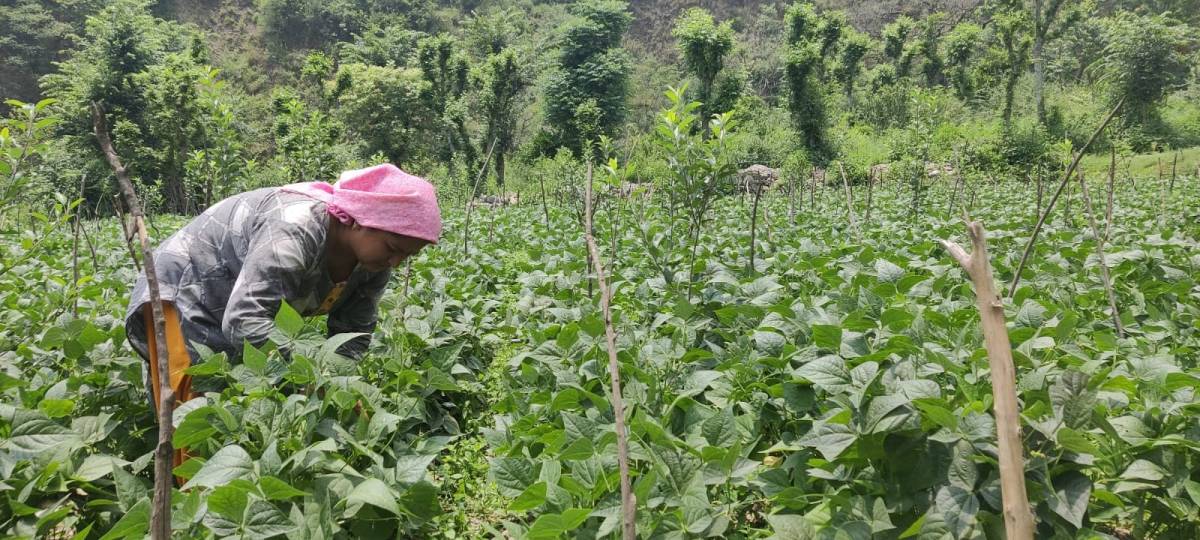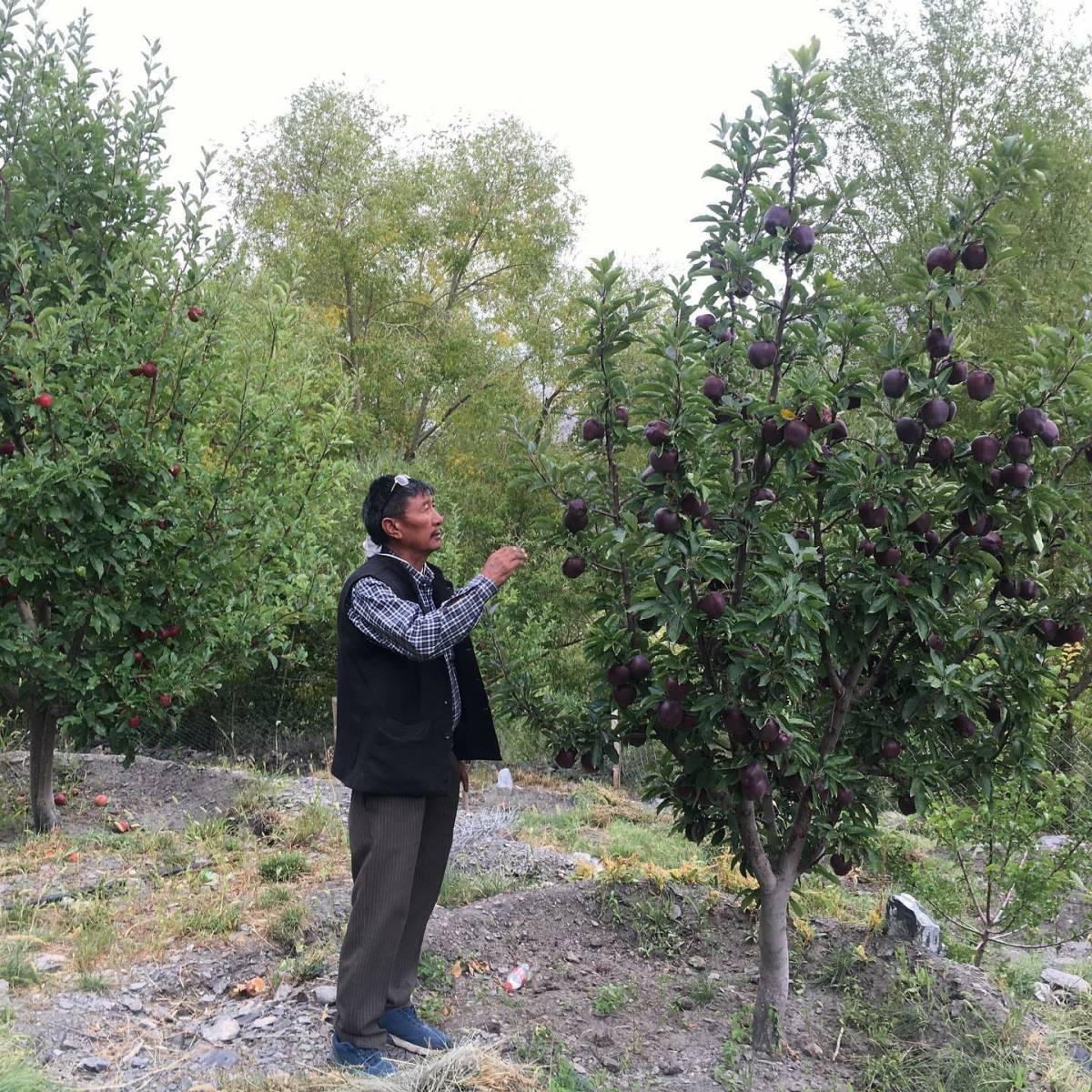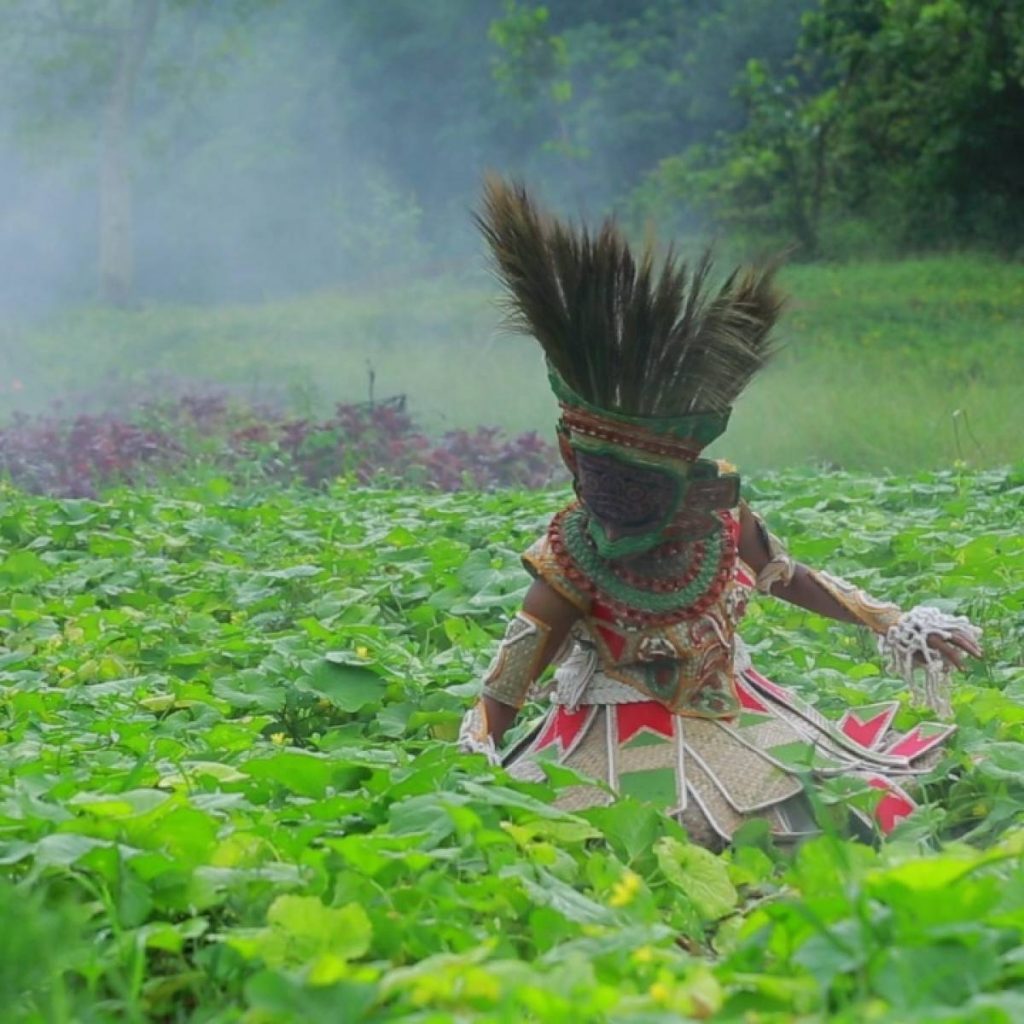The cost reduction, of course, enables 27.4 per cent increase in net returns in apples, 63.6 per cent in wheat and 21.5 per cent in fruits, pulses and vegetables…reports Vishal Gulati
The Subhash Palekar Natural Farming (SPNF), a technique promoted by Padma Shri recipient Subhash Palekar in the mid-1990s with no use of fertilisers and pesticides, has led to massive input cost reduction with considerably increase in crop yield in Himachal Pradesh, officials said on Sunday.
They say nine crops are being grown concurrently by state farmers, leading to crop intensification and diversity, besides 15 types of companion crops are being grown in apple orchards.
Rajeshwar Singh Chandel, Executive Director with Prakritik Kheti Khushhal Kisan Yojana, said as per their studies the SPNF technique has led to cost reduction of 56.5 per cent in apples, 28.1 per cent in wheat, and 45.5 per cent in fruits, pulses and vegetables.
The cost reduction, of course, enables 27.4 per cent increase in net returns in apples, 63.6 per cent in wheat and 21.5 per cent in fruits, pulses and vegetables.
Field reports say the farmers observed the crops cultivated with the SPNF technique are drought resistant, besides tastier and healthier than conventional crops.
The state government has been promoting non-chemical low-cost climate-resilient SPNF technique under the Prakritik Kheti Khushhal Kisan Yojana since 2018.
Over 1.50 lakh farmers have been trained in the technique with more than 1.40 lakh have adopted the technique, partially or fully.
Echoing his three-year success story worth emulating, an elated farmer Somkrishan from Pangana panchayat in Karsog block of Mandi district said the SPNF technique is far more effective and involves lesser cost than chemical or organic farming.
“The produce that we obtain from natural farming is healthy with no chemical residues,” he said.
Before natural farming, Somkrishan was doing organic farming for six years.
“Organic farming was too costly and I had to depend on the market for inputs. Luckily I got the chance to learn natural farming technique. It has cut down the cost of cultivation as I am no more dependent on the market and prepare all the inputs at home.”
He faced a lot of resistance by family members and villagers in his decision to shift to natural farming. By adopting the SPNF method, he brought down the cost of cultivation from Rs 70,000 to Rs 10,000.
He’s doing agriculture on 14 bighas and apple cultivation on six bighas. He grows peas, maize, wheat, beans, cauliflower and grams along with exotic vegetables like yellow capsicum, celery, red lettuce and Chinese cabbage.
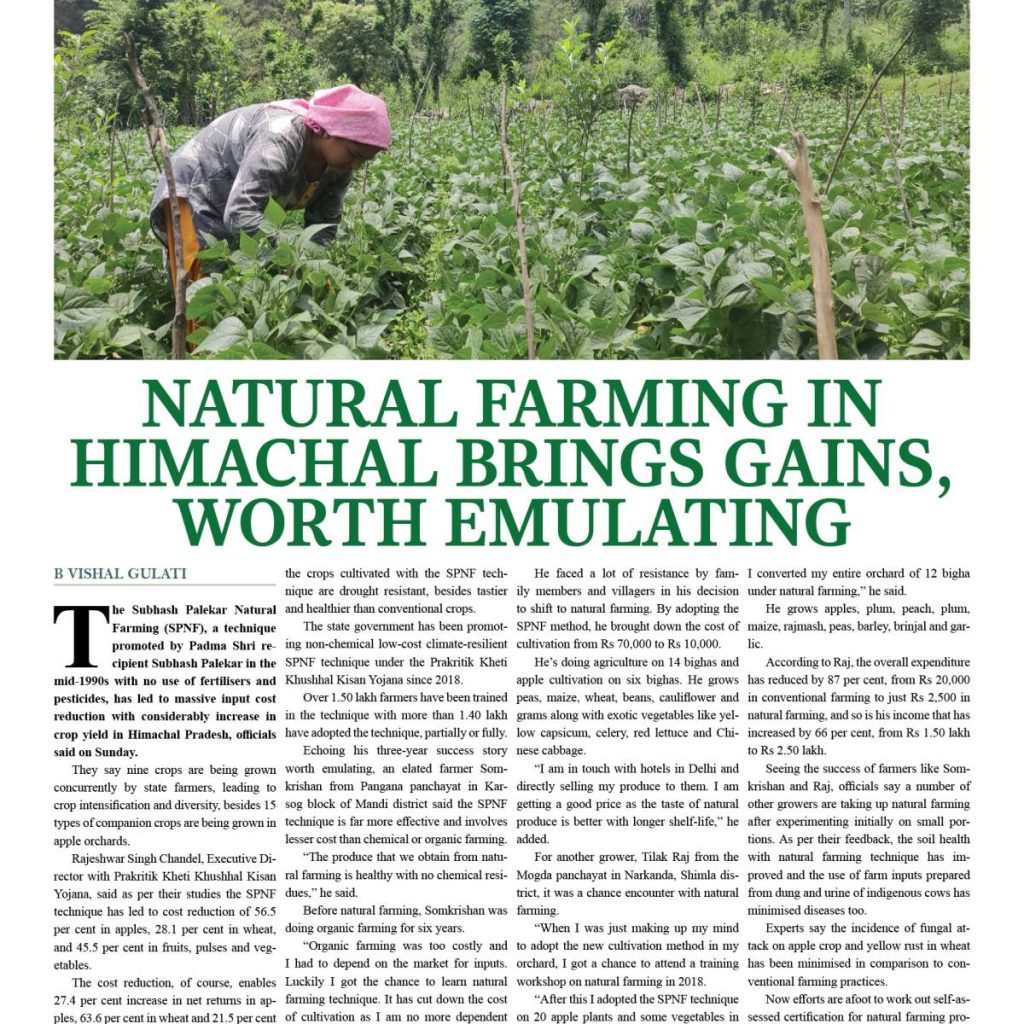
“I am in touch with hotels in Delhi and directly selling my produce to them. I am getting a good price as the taste of natural produce is better with longer shelf-life,” he added.
For another grower, Tilak Raj from the Mogda panchayat in Narkanda, Shimla district, it was a chance encounter with natural farming.
“When I was just making up my mind to adopt the new cultivation method in my orchard, I got a chance to attend a training workshop on natural farming in 2018.
“After this I adopted the SPNF technique on 20 apple plants and some vegetables in the kitchen garden as he already had indigenous cow. When I got overwhelming results, I converted my entire orchard of 12 bigha under natural farming,” he said.
He grows apples, plum, peach, plum, maize, rajmash, peas, barley, brinjal and garlic.
According to Raj, the overall expenditure has reduced by 87 per cent, from Rs 20,000 in conventional farming to just Rs 2,500 in natural farming, and so is his income that has increased by 66 per cent, from Rs 1.50 lakh to Rs 2.50 lakh.
Seeing the success of farmers like Somkrishan and Raj, officials say a number of other growers are taking up natural farming after experimenting initially on small portions.
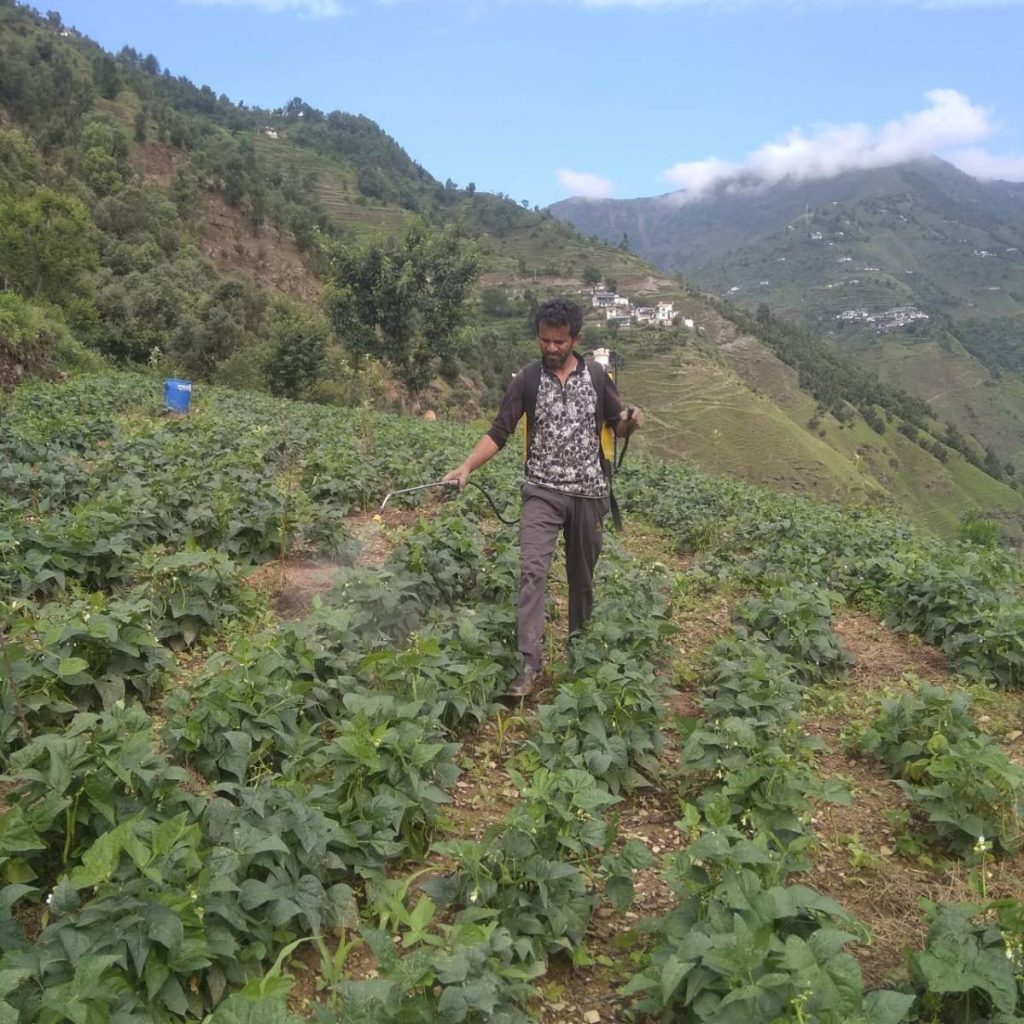
As per their feedback, the soil health with natural farming technique has improved and the use of farm inputs prepared from dung and urine of indigenous cows has minimised diseases too.
Experts say the incidence of fungal attack on apple crop and yellow rust in wheat has been minimised in comparison to conventional farming practices.
Now efforts are afoot to work out self-assessed certification for natural farming produce, along with developing a mechanism for farmer-consumer connect.
ALSO READ-No drugs found, Aryan sent to 3-day NCB custody with 2 others
READ MORE-India Needs to Retain Her Edge At Sea

